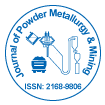Unsere Gruppe organisiert über 3000 globale Konferenzreihen Jährliche Veranstaltungen in den USA, Europa und anderen Ländern. Asien mit Unterstützung von 1000 weiteren wissenschaftlichen Gesellschaften und veröffentlicht über 700 Open Access Zeitschriften, die über 50.000 bedeutende Persönlichkeiten und renommierte Wissenschaftler als Redaktionsmitglieder enthalten.
Open-Access-Zeitschriften gewinnen mehr Leser und Zitierungen
700 Zeitschriften und 15.000.000 Leser Jede Zeitschrift erhält mehr als 25.000 Leser
Indiziert in
- CAS-Quellenindex (CASSI)
- Index Copernicus
- Google Scholar
- Öffnen Sie das J-Tor
- Genamics JournalSeek
- RefSeek
- Hamdard-Universität
- EBSCO AZ
- OCLC – WorldCat
- Publons
- Euro-Pub
Nützliche Links
Open-Access-Zeitschriften
Teile diese Seite
Abstrakt
Investigations of Thermal Damage on the Physical and Mechanical Properties of Gneiss Rock Specimen
MAMBOU NGUEYEP Luc Leroy, NDOP Joseph,NDJAKA Jean-Marie Bienvenu
The effect of thermal damage on the physical and mechanical properties of gneiss has been experimentally investigated. The cylindrical samples prepared from this rock were gradually heated to a specific temperature level of 100, 200, 300, 400, 500, 700, and 900°C and gradually cooled down to room temperature without causing thermal cracking in order to investigate the effect of thermal treatment on physical properties and mechanical properties. The mechanical tests conducted on the sample were the Brazilian test and the uniaxial compressive test. Microscopic analyses from thin section were done to better understand the reasons for the mechanical behavior observed from the mechanical test results. Our study confirms that the thermal treatment reduces the strength of gneiss and increases its porosity. Moreover, it is found that above 600°C of heating, gneiss rock specimens can loss 80% of its original mechanical performances. This is due to a micro crack network connection and their propagation. However between 300 and 400°C we observe an increase in the strength of gneiss. Microscopic examination shows the abundance of feldspar and pyroxene minerals in the gneiss, which in turn show high mineralogical phase changes at 300-400°C compared to change at temperatures above 400°C.
Zeitschriften nach Themen
- Allgemeine Wissenschaft
- Biochemie
- Chemie
- Genetik und Molekularbiologie
- Geologie und Geowissenschaften
- Immunologie und Mikrobiologie
- Klinische Wissenschaften
- Krankenpflege und Gesundheitsfürsorge
- Landwirtschaft und Aquakultur
- Lebensmittel & Ernährung
- Maschinenbau
- Materialwissenschaften
- Medizinische Wissenschaften
- Pharmazeutische Wissenschaften
- Physik
- Sozial- und Politikwissenschaften
- Umweltwissenschaften
- Veterinärwissenschaften
Klinische und medizinische Fachzeitschriften
- Anästhesiologie
- Augenheilkunde
- Betrieb
- Dermatologie
- Diabetes und Endokrinologie
- Gastroenterologie
- Genetik
- Gesundheitspflege
- Immunologie
- Infektionskrankheiten
- Kardiologie
- Klinische Forschung
- Medizin
- Mikrobiologie
- Molekularbiologie
- Neurologie
- Onkologie
- Pädiatrie
- Pathologie
- Pflege
- Toxikologie
- Zahnheilkunde

 English
English  Spanish
Spanish  Chinese
Chinese  Russian
Russian  French
French  Japanese
Japanese  Portuguese
Portuguese  Hindi
Hindi